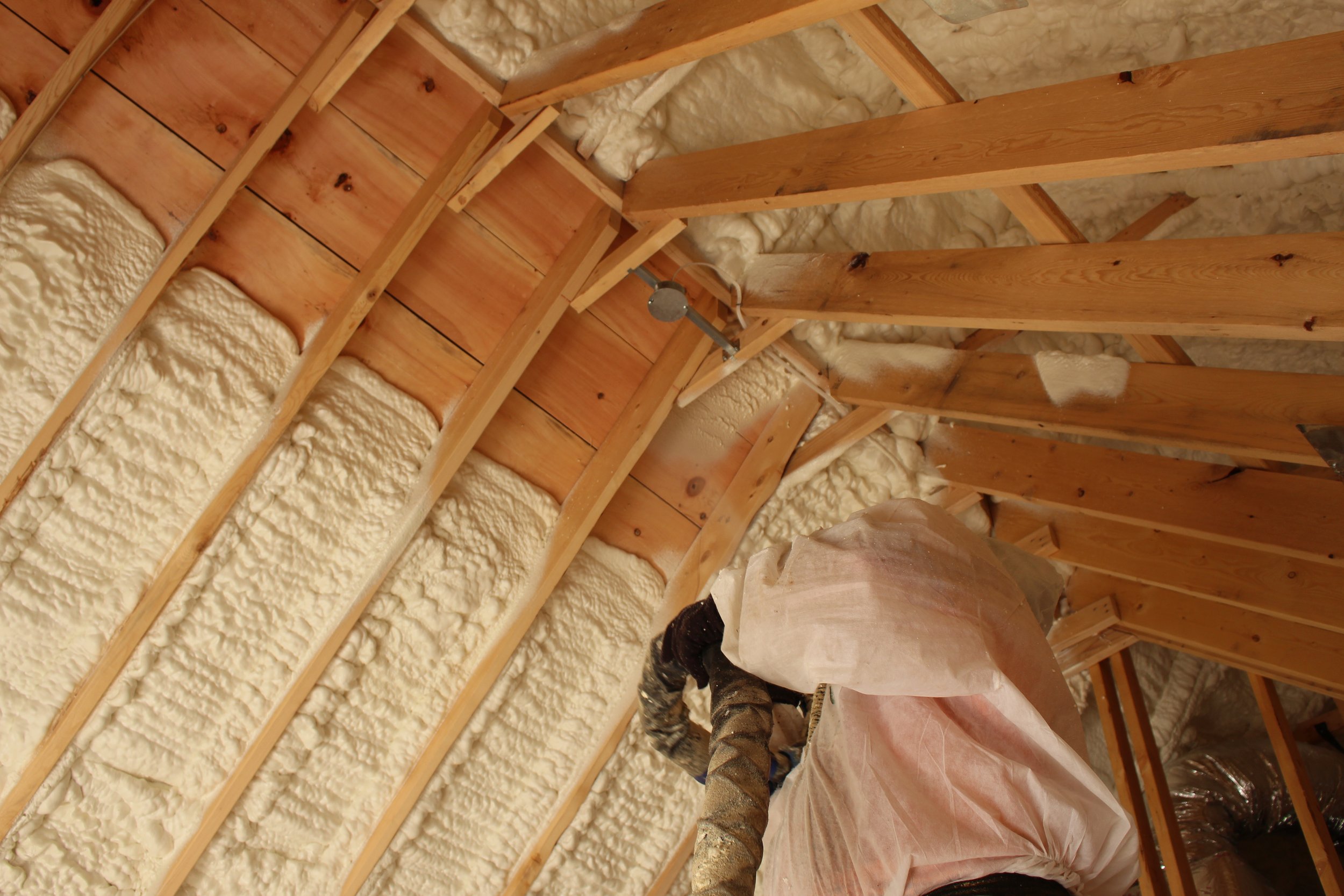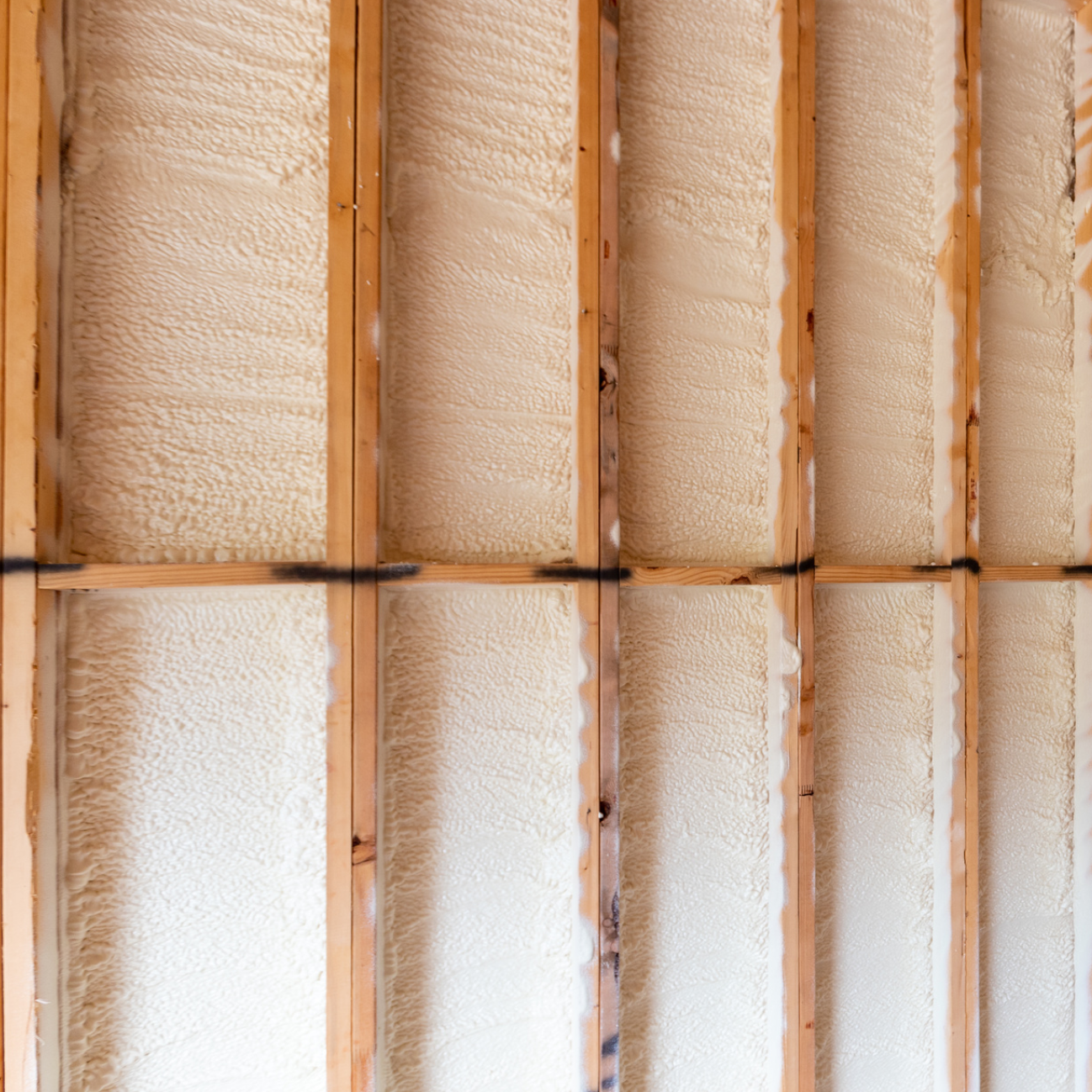Tips for Keeping Your Spray Foam Insulation for Long-Term Performance
Leading Reasons to Select Spray Foam for Your Following Insulation Task
When taking into consideration insulation alternatives for your following job, spray foam stands out due to its outstanding efficiency attributes and efficiency advantages. As you consider your options, checking out the versatile applications and long-term benefits of spray foam might expose compelling reasons to include it right into your insulation method.
Superior Insulation Performance

The high R-value of spray foam, which measures its thermal resistance, is an additional key advantage. Closed-cell spray foam, as an example, can achieve an R-value of as much as 6.5 per inch, significantly outmatching fiberglass batts and cellulose. Additionally, spray foam insulation produces an impermeable seal, which lessens thermal linking and reduces the capacity for mold and mildew development due to moisture build-up.

Power Effectiveness Advantages
The energy performance advantages of spray foam insulation are considerable, further boosting its allure as a leading option for building insulation. Among the main advantages is its superior thermal efficiency. Spray foam broadens upon application, creating an airtight seal that decreases air leaks, which is a common source of power loss in standard insulation materials. By effectively lowering thermal connecting, it maintains a regular indoor temperature level, consequently lowering cooling and heating costs.
Additionally, spray foam insulation flaunts a high R-value per inch, which means it uses more thermal resistance in less room compared to options like fiberglass or cellulose (Spray Foam). This efficiency not only contributes to instant power savings yet also promotes lasting sustainability by minimizing the general power intake of a building
Moreover, the implementation of spray foam can certify home owners for energy efficiency rewards and tax obligation credit histories, including financial advantages to its energy-saving abilities. In a period where energy conservation is paramount, choosing spray foam insulation not only boosts convenience but likewise lines up with eco liable practices, making it a prudent option for both business and residential jobs.
Dampness and Mold And Mildew Resistance
Offered its unique composition and application method, spray foam insulation provides exceptional moisture and mold resistance, making it a perfect option for different atmospheres. The closed-cell framework of spray foam develops a strong obstacle that check here properly seals possible dampness access, therefore lowering the chance of mold and mildew development. Unlike standard insulation materials, which can take in water and offer a reproduction ground for mold and mildew, spray foam remains unsusceptible dampness, boosting the general health and wellness of the indoor environment.
Moreover, the application procedure of spray foam involves expanding and filling voids and splits, ensuring a limited seal that lessens air leaks. This characteristic not just enhances energy performance yet additionally helps control moisture levels within the space. Correct humidity control is important for protecting against mold and mildew and mildew, making spray foam insulation specifically helpful in areas prone to wetness, such as basements and creep spaces.
In addition to its moisture-resistant residential or commercial properties, spray foam is additionally inherently resistant to mold and mildew growth. This particular makes certain that buildings and homes stay safe and healthy and balanced in time, giving satisfaction to home owners and building supervisors alike.
Long-Term Cost Financial Savings
Purchasing spray foam insulation yields considerable long-term expense financial savings, mainly via enhanced power efficiency. Unlike standard insulation products, spray foam creates a closed seal that minimizes air leak. This reduction in drafts causes decrease heating and air conditioning prices, as heating and cooling systems do not need to function as hard to preserve comfy interior temperatures.
Moreover, the exceptional read this post here shielding residential or commercial properties of spray foam suggest that homes remain regularly comfortable year-round, lowering dependence on energy-consuming appliances. In time, these financial savings can gather, resulting in a visible reduction in energy bills.
Furthermore, spray foam insulation adds to the long life of your home's framework by protecting against moisture accumulation and mold growth, which can result in costly repair work. With its toughness and resistance to clearing up, spray foam keeps its effectiveness throughout the years, guaranteeing that the preliminary investment continues to pay off.
Fundamentally, choosing spray foam insulation not only boosts your home's power performance yet likewise equates right into substantial lasting monetary advantages, making it a wise investment for homeowners looking to lower prices while enhancing comfort and sustainability.
Versatile Application Alternatives
Countless application choices make spray foam insulation a highly versatile selection for a selection of building projects (Spray Foam). This flexibility enables it to be efficiently utilized in household, business, and industrial setups, dealing with diverse insulation requirements
Spray foam can be used in attic rooms, wall surfaces, creep rooms, and even roofs, giving seamless coverage that removes gaps and spaces where air leaks commonly occur. Its capability to expand upon application makes certain a limited seal, which is vital for power effectiveness and wetness control.
In addition, spray foam insulation is readily available in various solutions, consisting of open-cell and closed-cell types, enabling for tailored solutions based on details task requirements. Open-cell foam is lighter and better matched for soundproofing, while closed-cell foam supplies premium insulation and structural stability, making it optimal for areas revealed to moisture.
Furthermore, spray foam can be applied in hard-to-reach areas, boosting its suitability for retrofitting existing structures. With the capacity to adhere to different substratums, including concrete, metal, and timber, spray foam insulation stands out as a flexible alternative that meets the demands of modern-day structure techniques.
Verdict
In verdict, spray foam insulation arises as a remarkable option for insulation projects due to its site here phenomenal thermal resistance, power effectiveness, and ability to develop closed seals that prevent dampness and mold and mildew growth. Picking spray foam insulation ensures a thorough option that meets the needs of contemporary building and construction and power efficiency criteria.
When it comes to accomplishing optimum energy performance in property and commercial structures, spray foam insulation stands out for its premium insulation performance.The power efficiency advantages of spray foam insulation are significant, more enhancing its charm as a top option for constructing insulation.Investing in spray foam insulation returns significant lasting cost savings, largely through improved power efficiency.In verdict, spray foam insulation emerges as a remarkable alternative for insulation projects due to its phenomenal thermal resistance, energy effectiveness, and capacity to create closed seals that protect against moisture and mold development. Choosing spray foam insulation ensures an extensive remedy that meets the demands of contemporary building and construction and power efficiency requirements.